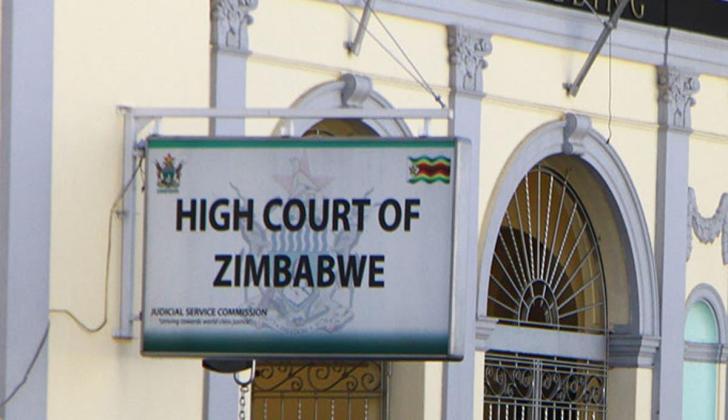News / National
Ex-Harare town clerk acquitted over US$80 million tender scandal
08 Nov 2024 at 07:15hrs |
0 Views

Former Harare Town Clerk Tendai Mahachi has been acquitted of charges relating to the alleged prejudice of the Harare City Council of US$80 million after he hired a foreign firm, Augur Investments, to undertake roadworks in the city without following proper tender procedures.
Mahachi faced accusations of engaging Augur Investments to carry out construction and upgrades on the Joshua Mqabuko Nkomo Expressway in Harare in 2008, without going to tender. Prosecutors claimed that Mahachi, together with Michael Mahachi, had corruptly signed a Memorandum of Agreement (MOA) with the foreign company. The charges were based on the claim that the alleged agreement was made on May 30, 2008, without following the required tendering process.
However, after trial, Harare Magistrate Vongai Muchuchuti cleared Mahachi of any wrongdoing. The magistrate ruled that the State had failed to sufficiently explain Mahachi's duties as Town Clerk and noted that key state witnesses did not support the charges.
In particular, Dr. Mafoti, a member of the council's executive committee, provided testimony that exonerated Mahachi. Dr. Mafoti, who had chaired an executive committee meeting on June 18, 2007, which was crucial to the case, confirmed that the executive committee had made the decision to form a joint venture with Augur Investments. Dr. Mafoti stated that the committee had passed resolutions regarding the construction and upgrading of the Airport Road, a project which involved Augur Investments.
Mahachi's defense, led by lawyer Admire Rubaya, argued that the former town clerk was not involved in the decision-making process regarding the engagement of Augur Investments. Rubaya explained that the decision to form a joint venture with the company was made collectively by the City of Harare's executive committee, not Mahachi as an individual. The defense also pointed out that Mahachi was acting under instructions from the higher authorities of the City of Harare at the time and had no voting rights or authority to make such decisions on his own.
"It is critical to state that the accused person was just an employee of the City of Harare and was not a member of the executive committee, the commission, or the council which would ordinarily make the decisions on whether to engage any service providers," Rubaya argued. "He was simply following instructions from the council's decision-makers and cannot be held criminally liable for signing documents."
Rubaya further explained that the City of Harare had delegated authority for the project to the executive committee, which had authorized the joint venture with Augur Investments. Additionally, Rubaya argued that the project became a national initiative, which meant there was no legal requirement to go to tender.
The court's decision to acquit Mahachi has been met with mixed reactions. Some have praised the ruling as a victory for transparency and fairness, while others argue that the case highlights the challenges of holding public officials accountable in complex urban development projects. Despite the acquittal, the issue of corruption and governance in Zimbabwe's local authorities remains a topic of national debate.
Mahachi faced accusations of engaging Augur Investments to carry out construction and upgrades on the Joshua Mqabuko Nkomo Expressway in Harare in 2008, without going to tender. Prosecutors claimed that Mahachi, together with Michael Mahachi, had corruptly signed a Memorandum of Agreement (MOA) with the foreign company. The charges were based on the claim that the alleged agreement was made on May 30, 2008, without following the required tendering process.
However, after trial, Harare Magistrate Vongai Muchuchuti cleared Mahachi of any wrongdoing. The magistrate ruled that the State had failed to sufficiently explain Mahachi's duties as Town Clerk and noted that key state witnesses did not support the charges.
In particular, Dr. Mafoti, a member of the council's executive committee, provided testimony that exonerated Mahachi. Dr. Mafoti, who had chaired an executive committee meeting on June 18, 2007, which was crucial to the case, confirmed that the executive committee had made the decision to form a joint venture with Augur Investments. Dr. Mafoti stated that the committee had passed resolutions regarding the construction and upgrading of the Airport Road, a project which involved Augur Investments.
Mahachi's defense, led by lawyer Admire Rubaya, argued that the former town clerk was not involved in the decision-making process regarding the engagement of Augur Investments. Rubaya explained that the decision to form a joint venture with the company was made collectively by the City of Harare's executive committee, not Mahachi as an individual. The defense also pointed out that Mahachi was acting under instructions from the higher authorities of the City of Harare at the time and had no voting rights or authority to make such decisions on his own.
"It is critical to state that the accused person was just an employee of the City of Harare and was not a member of the executive committee, the commission, or the council which would ordinarily make the decisions on whether to engage any service providers," Rubaya argued. "He was simply following instructions from the council's decision-makers and cannot be held criminally liable for signing documents."
Rubaya further explained that the City of Harare had delegated authority for the project to the executive committee, which had authorized the joint venture with Augur Investments. Additionally, Rubaya argued that the project became a national initiative, which meant there was no legal requirement to go to tender.
The court's decision to acquit Mahachi has been met with mixed reactions. Some have praised the ruling as a victory for transparency and fairness, while others argue that the case highlights the challenges of holding public officials accountable in complex urban development projects. Despite the acquittal, the issue of corruption and governance in Zimbabwe's local authorities remains a topic of national debate.
Source - zimive
Join the discussion
Loading comments…
































